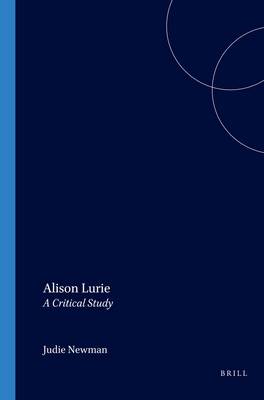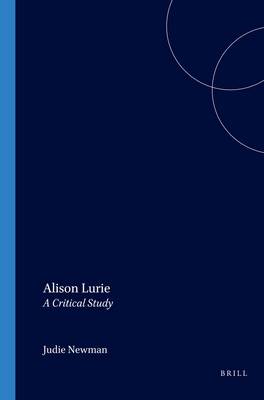
- Afhalen na 1 uur in een winkel met voorraad
- Gratis thuislevering in België vanaf € 30
- Ruim aanbod met 7 miljoen producten
- Afhalen na 1 uur in een winkel met voorraad
- Gratis thuislevering in België vanaf € 30
- Ruim aanbod met 7 miljoen producten
Zoeken
Omschrijving
Drawing on personal interviews, manuscript collections, and the author's unpublished writings, Judie Newman offers a comprehensive study of the work of Alison Lurie from her early involvement in the Poets' Theatre to the AIDS comedy of her most recent novel, The Last Resort (1988).
In her profound social and intellectual engagement with American Utopianism, from its historical origins through such contemporary manifestations as Walter Benjamin's Hollywood, the American University, feminist theorisations, the religious cult and the gay heterotopia, and in her intertextual reworkings of folk and fairy tale, biography, diary novel, the 'International Theme' and the classic ghost story, Lurie maintains an uncanny ability to serve critical aesthetic purposes within a popular fictional form.
Semiotic comedies - comedies of the sign - rather than novels of manners, Lurie's fictions place her squarely within a radical American tradition.
In her profound social and intellectual engagement with American Utopianism, from its historical origins through such contemporary manifestations as Walter Benjamin's Hollywood, the American University, feminist theorisations, the religious cult and the gay heterotopia, and in her intertextual reworkings of folk and fairy tale, biography, diary novel, the 'International Theme' and the classic ghost story, Lurie maintains an uncanny ability to serve critical aesthetic purposes within a popular fictional form.
Semiotic comedies - comedies of the sign - rather than novels of manners, Lurie's fictions place her squarely within a radical American tradition.
Specificaties
Betrokkenen
- Auteur(s):
- Uitgeverij:
Inhoud
- Aantal bladzijden:
- 220
- Taal:
- Engels
- Reeks:
- Reeksnummer:
- nr. 127
Eigenschappen
- Productcode (EAN):
- 9789042012226
- Verschijningsdatum:
- 1/01/2000
- Uitvoering:
- Paperback
- Formaat:
- Trade paperback (VS)
- Afmetingen:
- 155 mm x 234 mm
- Gewicht:
- 326 g

Alleen bij Standaard Boekhandel
+ 184 punten op je klantenkaart van Standaard Boekhandel
Beoordelingen
We publiceren alleen reviews die voldoen aan de voorwaarden voor reviews. Bekijk onze voorwaarden voor reviews.








